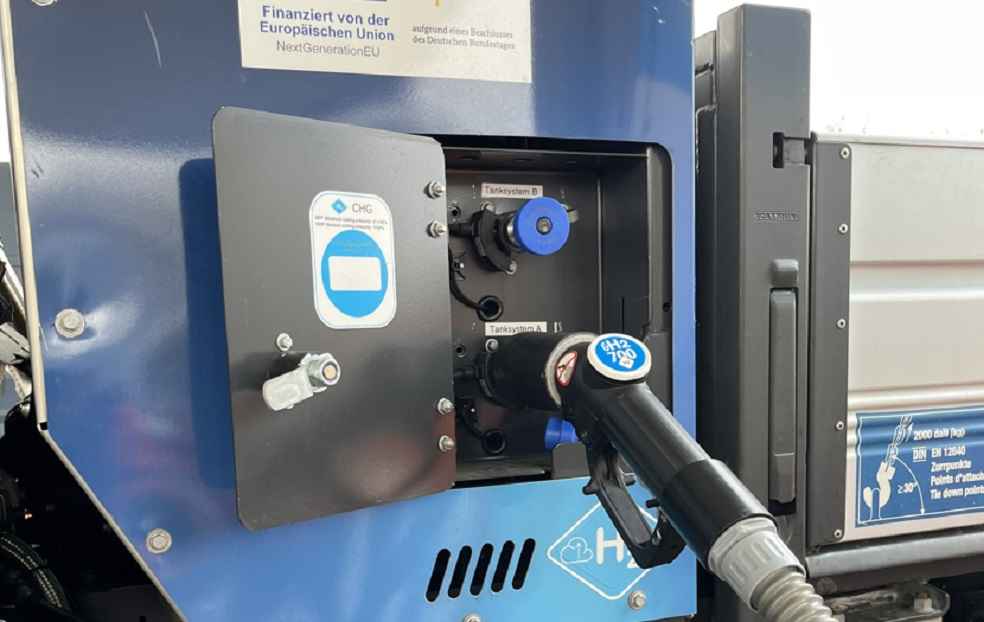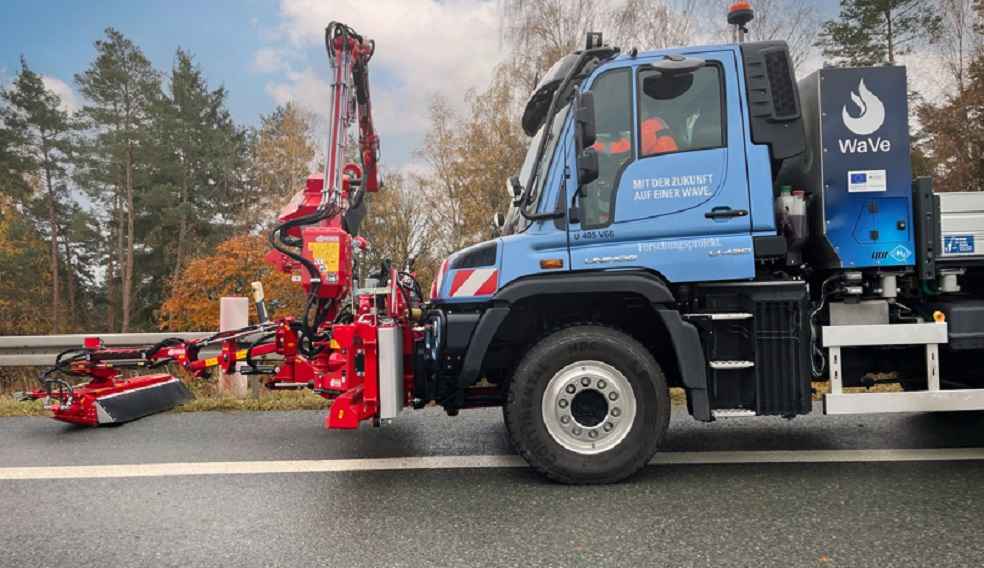Mercedes-Benz Special Trucks has entered a new era of vehicle technology by testing a Unimog prototype with a hydrogen combustion engine. This test, conducted on a decommissioned highway stretch between Bayreuth and Bamberg, signifies a leap in alternative fuel utilization.
The prototype, based on the Unimog U 430, underwent various operational tests including mowing, acceleration, and refueling at public gas stations. This is part of the ‘WaVe’ project, a collaborative effort with 18 partners focused on enhancing hydrogen combustion engine technology. Real-world testing under diverse environmental conditions is key to this project’s success.
Franziska Cusumano, head of Mercedes-Benz Special Trucks, expressed enthusiasm about the project’s current stage. “After a good two-year project term, we are already in practical testing with the first operational Unimog prototype featuring a hydrogen combustion engine,” she said. Feedback from practical applications, especially in collaboration with Autobahn GmbH staff in Upper Franconia, is crucial for ongoing enhancements.

This Unimog’s engine, initially designed for natural gas, has been adapted for hydrogen combustion. It features four TÜV-certified high-pressure tanks that store approximately 14 kilograms of hydrogen. Enhancing fuel capacity to support a full workday is a primary focus. The engine, quieter than its diesel counterpart, delivers about 290 hp and 1000 Nm of torque.
The WaVe project, backed by Germany’s Federal Ministry for Economic Affairs and Climate Protection, explores the potential of hydrogen as a substitute for diesel engines. This initiative complements Daimler Truck’s strategy to reduce carbon emissions through various technologies, including hydrogen combustion engines.
Given Unimog’s limited installation space and high-performance requirements, hydrogen combustion shows promise as a future propulsion method. With successful initial trials, the development team anticipates another six months of refinement and testing.

Dr. Günter Pitz, Head of Powertrain Development at Mercedes-Benz Special Trucks, highlighted the broader implications of hydrogen combustion. “The hydrogen combustion drive concept can serve as a blueprint for power-intensive applications in the specialty vehicle sector,” he said.
Pitz further added, “Hydrogen combustion can make it possible to drive and work with very low emissions on construction sites, in municipal or agricultural sectors. To reach series maturity for such vehicles, reliable funding is and will be required.”
This prototype’s success marks a significant milestone in developing sustainable, high-performance vehicles, steering the industry towards a more environmentally friendly future in specialized transportation.
LATEST | Japan, Thailand Forge New Partnership for Auto Industry and Digital Drive





